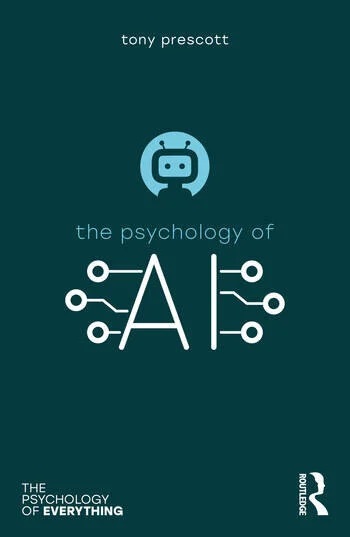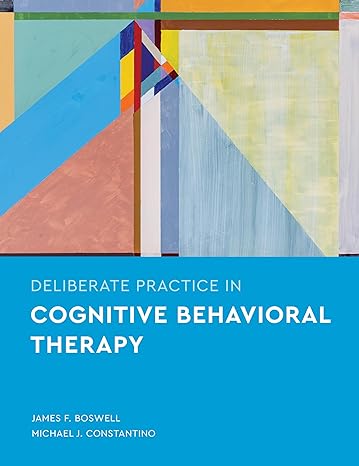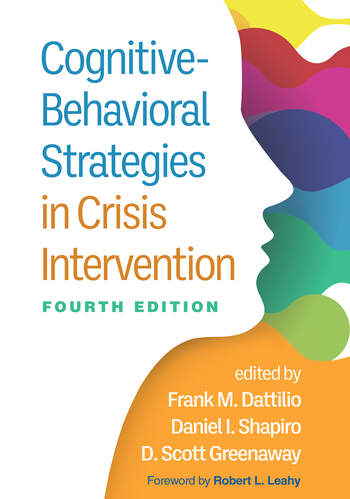The Philosophy of Cognitive-Behavioural Therapy (CBT): Stoic Philosophy as Rational and Cognitive Psychotherapy

Book Details
- Publisher : Karnac Books
- Published : 2010
- Cover : Paperback
- Pages : 318
- Category :
Cognitive-Behavioural Therapies - Catalogue No : 28074
- ISBN 13 : 9781855757561
- ISBN 10 : 1855757567
Also by Donald Robertson
Free UK Delivery over £25
Our Customers Average Rating
Read all reviews (2)





Why should modern psychotherapists be interested in philosophy, especially ancient philosophy? Why should philosophers be interested in psychotherapy? There is a sense of mutual attraction between what are today two thoroughly distinct disciplines. However, arguably it was not always the case that they were distinct.
Donald Robertson takes the view that by reconsidering the generally received wisdom concerning the history of these closely-related subjects, we can learn a great deal about both philosophy and psychotherapy, under which heading he includes potentially solitary pursuits such as "self-help" and "personal development".
Reviews and Endorsements
'This book is a fascinating interweaving of Stoic philosophy and contemporary cognitive-behavioural therapy (CBT). Robertson rightly reminds us of how much CBT owes its philosophical origins to the Stoics but, sadly, how often this debt is insufficiently acknowledged. He urges us to redirect our attention to the past to see how modern CBT still has much to learn from its ancient precursors. Highly recommended.'
- Michael Neenan, Co-Director of the CBT Programme, Centre for Stress Management, Bromley, Kent, UK
'Many of us have felt the need for a book that covers the underlying philosophy of the cognitive-behavioural therapies in much greater depth. This book provides us with the missing link between the theory and the philosophy. It is a fascinating read and could be considered as either a prequel or a sequel to the standard textbook read by a trainee or experienced cognitive-behavioural or rational emotive practitioner who wants to understand these approaches to therapy within an historical framework.'
- Professor Stephen Palmer, PhD, FARBT, FBACP, Director of the Centre for Stress Management, London
'The author has uncovered a wealth of connections between modern cognitive-behavioural therapies and ancient Stoic philosophy. It should be read by anyone interested in understanding the historical roots of CBT or in learning about how ancient psychotherapeutic methods can add to the modern therapist's toolkit.'
- Tim LeBon, UKCP registered psychotherapist and author of Wise Therapy
'Donald Robertson is blazing a trail to discover the sources of cognitive-behavioural therapy, and Stoic philosophy is prime among these. A fascinating work that should be compulsory reading for all practitioners in the field and interested lay people, providing insights into how ancient philosophy can give us the coping and life success strategies we are all looking for, both as professionals and in private life. A great read!'
- Tom Butler-Bowdon, author of 50 Self-Help Classics and 50 Psychology Classics
About the Author(s)
Donald Robertson is a registered psychotherapist (UKCP/EAP) in private practice, specialising in clinical hypnosis and cognitive-behavioural therapy (CBT). He has been working as a therapist since 1996, and is currently the principal of the UK College of Hypnosis & Hypnotherapy, a private training provider. Donald has published dozens of articles on hypnosis, philosophy, and psychotherapy in professional journals and periodicals. He is the author of Teach Yourself Resilience (Hodder), The Philosophy of Cognitive-Behavioural Therapy (Karnac), and the editor of The Discovery of Hypnosis: The Complete Writings of James Braid, the Father of Hypnotherapy (NCH). He regularly speaks at conferences and other events on issues such as hypnosis and philosophy in psychotherapy. Donald originally comes from Ayr, on the West coast of Scotland. He previously worked as a counsellor with young offenders, drug users, and schoolchildren, before opening his private practice in Harley Street, London. He studied Mental Philosophy at Aberdeen University before completing his Masters degree in Psychoanalytic Studies at the Centre for Psychotherapeutic Studies, Sheffield University. He holds a number of qualifications in different therapeutic approaches, including two practitioner diplomas in CBT, one from the Centre for Stress Management and the other from Kings College, London.
Customer Reviews
Our customers have given this title an average rating of 5 out of 5 from 2 review(s), add your own review for this title.
Tim LeBon on 20/10/2010 11:15:31




 (5 out of 5)
(5 out of 5)
Cognitive Behavioural Therapy (CBT) is certainly one of the therapies people are talking about and governments are investing money in promoting. With good reason, as it is evidence-based and can work a lot more rapidly than many alternatives.
However CBT does have its limitations, one of which, some would say, is the lack of philosophical depth. However whilst CBT can be practised in a superficial, cookbook style, this isn't necessarily so. Particularly when one realises that CBT has very strong connections with centuries of practice in the ancient world. This is one of the reasons why this book is so relevant to modern practitioners and anyone else interested in CBT and REBT.
In this book Donald Robertson, who has a wealth of experience in a number of therapies as well as a very strong academic background, has uncovered a wealth of connections between modern cognitive behavoural therapies and ancient Stoic philosophy. You can read not only about the philosophical origins of CBT but also about the history of Stoicism and other philosophical therapies. If you are keen to learn about practical techniques, there's a lot of them too - a whole section is devoted to what the author calls "The Stoic Armamentarium".
This is an eclectic book -you'll find fascinating accounts of Ellis's REBT, hypnotism and Buddhism as well as Beck, Seneca and the usual suspects. All in all, highly recommended.
This book should be read by anyone interested in understanding the historical roots of CBT or in
learning about how ancient psychotherapeutic methods can add to the modern therapist's toolkit
Tim LeBon (author of Wise Therapy) on 20/10/2010 10:45:56




 (5 out of 5)
(5 out of 5)
Cognitive Behavioural Therapy (CBT) is certainly one of the therapies people are talking about and governments are investing money in promoting. With good reason, as it is evidence-based and can work a lot more rapidly than many alternatives.
However CBT does have its limitations, one of which, some would say, is the lack of philosophical depth. However whilst CBT can be practised in a superficial, cookbook style, this isn't necessarily so. Particularly when one realises that CBT has very strong connections with centuries of practice in the ancient world. This is one of the reasons why this book is so relevant to modern practitioners and anyone else interested in CBT and REBT.
In this book Donald Robertson, who has a wealth of experience in a number of therapies as well as a very strong academic background, has uncovered a wealth of connections between modern cognitive behavoural therapies and ancient Stoic philosophy. You can read not only about the philosophical origins of CBT but also about the history of Stoicism and other philosophical therapies. If you are keen to learn about practical techniques, there's a lot of them too - a whole section is devoted to what the author calls "The Stoic Armamentarium".
This is an eclectic book -you'll find fascinating accounts of Ellis's REBT, hypnotism and Buddhism as well as Beck, Seneca and the usual suspects. All in all, highly recommended.
This book should be read by anyone interested in understanding the historical roots of CBT or in
learning about how ancient psychotherapeutic methods can add to the modern therapist's toolkit
You may also like
Cognitive-Behavioral Strategies in Crisis Intervention: Fourth Edition
Frank M. Dattilio
Price £51.99
Using Psychodynamic Thinking to Enhance CBT in Clients with Psychosis: A Case...
Simon Jakes
Price £29.99









